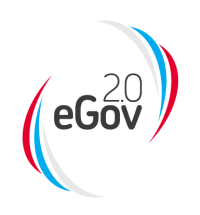The Russian Practice Of E-Government: First Russian Conference On Government 2.0
 I am organizing the 1st Russian E-Gov conference on November 15, 2010.
I am organizing the 1st Russian E-Gov conference on November 15, 2010.
Typically scheme of the conference includes long plenary sessions, public lectures on the development of information society, 20-40 minutes reports, and then another discussion of terms and theories. Very little result! Inherent bureaucratic thinking: much is discussed and we will wait for discussions on the proposal next year.
We decided to radically change the situation. We will go small, but determined steps: the principle of efficiency in business. This conference is a platform that combines public and civic decisions that are already implemented. For example, they can be beta stage projects in the field of electronic government. We adhere to the principle of «do not scold, but offer!» . Working logic: civic and business projects can provide the necessary information, contacts or support, and the practices and proposals that can become efficient nationwide. Look through the programm
Key questions:
- How and when is it possible to spend a huge budget to create really working tools?
- Who is logically more interested in implementing e-gov initiatives: government or business?
- Why does Russia have negative attitude to the whole subject of electronic government, and how is it possible to help a history of successful projects to change the situation?
- What can a business and society attain with help of the e-government and wants at all?
We estimate global practices, effective models for development of projects in the field of electronic government, we analyze the success stories, and compare those to the public projects and businesses in the area of electronic government. We are not talking about words and terrible terms, but rather about actually existing, often low-cost, but effective initiatives.
The purpose and objectives of the conference.
Our task is to find common problems and gaps in the interaction of all three components and provide an opportunity to share experiences and work together for a successful and efficient operation of all projects. Therefore the structure of the conference is as follows: in each section there will be some civil and public projects presented, and the basic task not to push the two sides, but to maintain an effective dialogue in order to achieve concrete results.
| Time (GMT+03.00) | Topic |
| 09:00 — 10:00 | Registration of participants. Coffee. |
| 10:30 — 10:40 | Opening of the conference. |
| 10:40 — 11:00 | Coffee Break. |
| 11:00 — 12:30 | Section G2C E-diplomacy. Electronic official.
Image of politics in the network. Working with negative comments. Requirements and restrictions for bloggers. Appropriate and inappropriate platform for communicating with the audience. Analysis of the best blogs. Guide for blogging. |
| 11:00 — 12:30 | Section G2C Public services for citizens.
State program to provide electronic public services. Major problems. Civil projects aimed at promoting public electronic services. Payment systems and business solutions to pay for public services. Features of the implementation of public services in the regions: government and business. The Moscow system is a single window. How could business and civilian projects help the state? |
| 12:30 — 13:30 | Session G2B Public projects for business.
Ongoing state projects aimed at business development and interaction with public authorities via the Internet: electronic tax, accounting, EDS. Public procurement and tenders. What projects are required to meet business needs? |
| 13:30 — 14:30 | Lunch. |
| 14:30 — 16:00 | Session G2G Interaction between government agencies and departments.
Technology and communication mechanisms within governmental structures. The panel includes government, civic and business. Projects that develop in the interaction among public structures, ministries, regional and municipal authorities at various levels. Social platform for officials and experts |
| 14:30 — 16:00 | Section G2C Civic Initiatives: Citizen 2.0.
Private initiatives. Crowdsourcing. Online reception for the citizens. Community-based projects in transportation and healthcare. |
| 16:00 — 16:15 | Coffee Break |
| 16:15 — 18:00 | Session «e-Region» |
| 18:00 — 19:00 | Closing the conference. Summing-up. |




